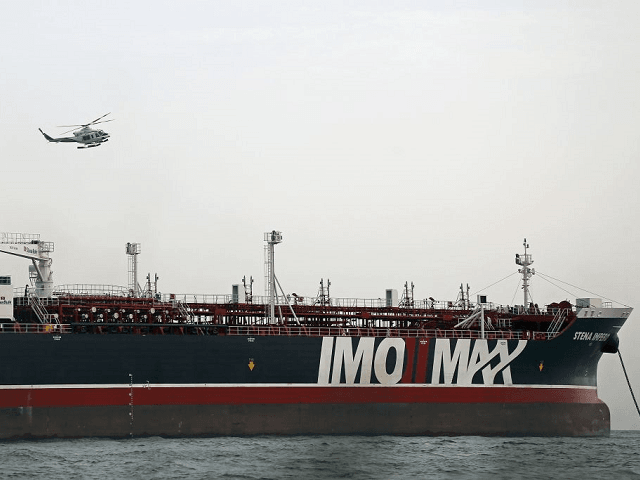Junior defence minister Tobias Ellwood has called on the next Prime Minister of the United Kingdom to recognise the poor state of the Royal Navy when they take power, in comments that follow a British owned tanker being seized by Iranian gunboats in the Straits of Hormuz.
The Royal Navy is too small to do its job, Conservative cabinet member at the Ministry of Defence Tobias Elwood has said, amid an ongoing crisis which has seen a British-flagged oil tanker boarded and captured by gunboats of the Iranian Revolutionary Guard. Iran has subsequently released footage of the ship with the Iranian flag flying from the masthead, and of the crew under arrest.
Speaking to centre-right news outlets The Times and Sky News as well as ITV breakfast television, Elwood said if the country chose to continue to operate on the world stage, decisions about the future of defence — and particularly the navy — would have to be made.
He told Sky News: “If we want to continue playing a role on the international stage, bearing in mind that threats are changing and all happening just below the threshold of all-out war, then we must invest more in our defence, and that includes the Royal Navy.”
Three Days After British Ship Captured by Iranian Gunboats, PM Theresa May Chairs Security Meeting https://t.co/pgPoCJnEkk
— Breitbart London (@BreitbartLondon) July 22, 2019
In a damning assessment that comes as the single British warship defending the Strait of Hormuz arrived ten minutes too late to save a British-flagged merchantman from being captured by Iranian raiders, Ellwood continued: “Our Royal Navy is too small to manage our interests across the globe if that’s our future intentions, and that’s something that the next Prime Minister will have to recognise.”
The United Kingdom is due to have a new Prime Minister this week, as the governing Conservative party chooses a new leader. Present foreign secretary and leadership contender Jeremy Hunt has promised to boost defence funding, while former London mayor Boris Johnson has declined to comment on the subject at all.
Present Prime Minister Theresa May finally chaired a government emergency response committee Monday, three days after the attack took place.
Royal Navy Surface escort fleet snapshot July 2019 pic.twitter.com/8Zfx09sUHt
— NavyLookout (@NavyLookout) July 21, 2019
The Royal Navy has suffered from severe cutbacks during the post-Cold-War period, despite the clear importance of such a force to any nation that relies on global seaborne trade like the United Kingdom. Particularly harshly cut has been the frigate force, the workhorses of the navy which are well suited to both frontline warfighting as well as low-intensity roles, which has fallen from 46 working ships in 1982 to 13 in 2019.
Of the 13 frigates, six are in refit and consequently unavailable for service.
The United States Navy has more destroyers deployed in the Persian Gulf than the Royal Navy has in service in total, a legacy of a building programme of new ships which was cut twice, from 12 to six. One UK destroyer is on its way to the Gulf, one is in UK waters, and four are either in maintenance, refit, or laid up.
In previous times of conflict, the British experience has shown that corralling merchantmen into convoys to maximise the effectiveness of escort warships is an extremely effective method of minimising attacks, however that strategy has not yet been approached by the British government to confront the situation with Iran.
Breitbart London reported Monday on claims that the United States Navy had already offered support to its ally Britain in the Persian Gulf, but that the British government turned this down out of fear of upsetting Iran and the European Union.

COMMENTS
Please let us know if you're having issues with commenting.